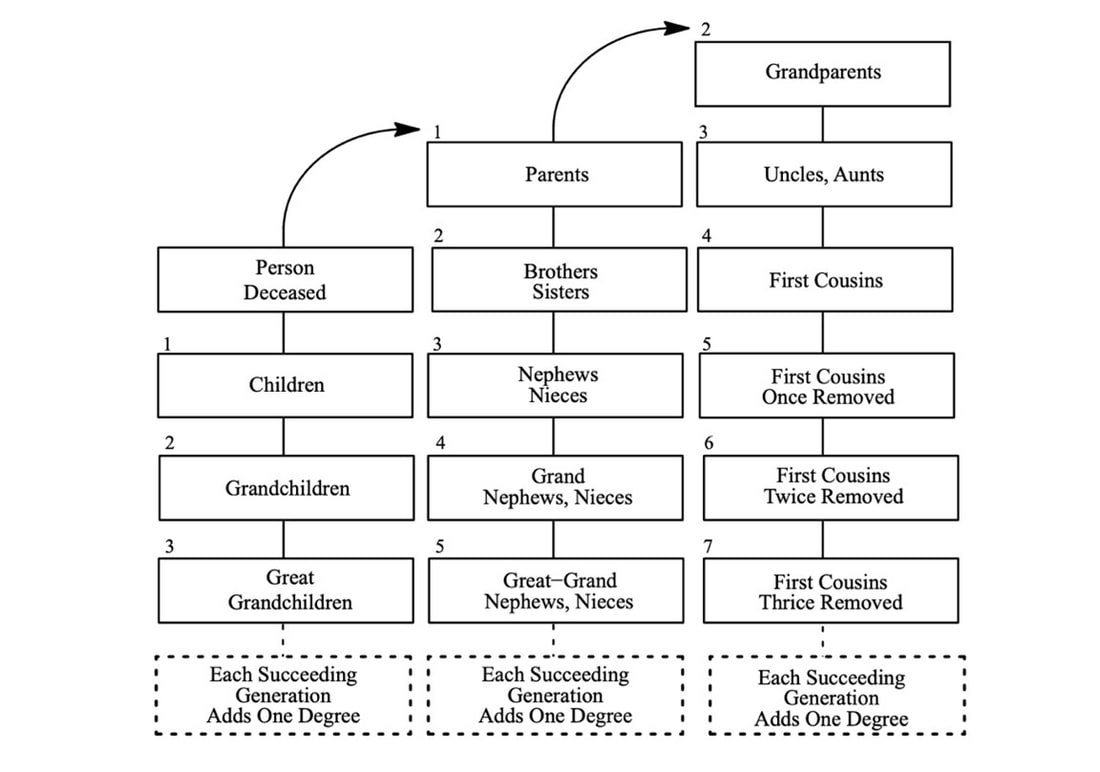|
Administering the estate of a deceased family member is complex in itself. When an estate is left with only a will or intestate (without a will), it enters probate, making the process even more complex. Wisconsin probate law requires all next of kin to be notified, including all of the family members the deceased may not have wanted to receive an inheritance. It is important to understand when it comes to estate planning and probate, Wisconsin will always favor one thing— blood lines. All next of kin are allowed to contest a will that has entered probate if they choose. Families often don’t understand who is next of kin. Following is the process Wisconsin courts will go through to identify the rightful heirs. The Table of Consanguinity First things first: If a decedent has a spouse and no children, but has not drafted a will, the entire estate goes to the spouse. When no spouse is present, it starts to get interesting. Consanguinity refers to the degrees of relationship within a family. In Wisconsin, state law references the following Table of Consanguinity when discussing intestate succession: To interpret this table, start with “Person Deceased” in the top left. The remaining labeled boxes map out each individual’s relationship to the deceased by title and degree of distance. An inheritance flows, starting in the left column, to the decedent’s children and descendants.
If the deceased has no living children, grandchildren, or great grandchildren – direct bloodlines – probate courts jump to column 2 and work down the line of the deceased’s parents. An important term to understand in consanguinity is “per stirpes.” This means that, in a case in which a would-be beneficiary is deceased but has children or grandchildren, the would-be beneficiary’s portion of the estate is then split between their living heirs. In Wisconsin, the court will only go so far as to notify any living descendants of the grandparents of the deceased when searching for next of kin. At that point, if no beneficiary is found, the state then stops looking and “escheats” the assets by releasing them to a state fund. A Seamless, Holistic Approach As you can see, probate can get complicated – and ugly – when a person’s estate is not protected, and inheritance is up for debate. To make matters more complex, the only assets that enter probate are those that are owned individually by the deceased and do not have a beneficiary associated with them – such as real estate, vehicle titles, and bank accounts. All other assets – artwork, digital files, personal belongings, etc. – would still need to be administered by an executor outside of court. Estate plans provide protections for you and your loved ones during your lifetime and after death. They ensure estates are handled according to your wishes – without the involvement of probate courts. Block Legal Services works with you to understand your unique circumstances, family, assets, and goals. We educate you about the pros and cons of each estate structure and together craft a plan that makes sense of your situation. Do you want to rest easy knowing that your affairs have been taken care of? Schedule a free consultation today. Comments are closed.
|
AuthorWilliam Block Categories
All
Archives
May 2023
|


 RSS Feed
RSS Feed



